'We didn't think we were alive - all we could see was sand'
- Published
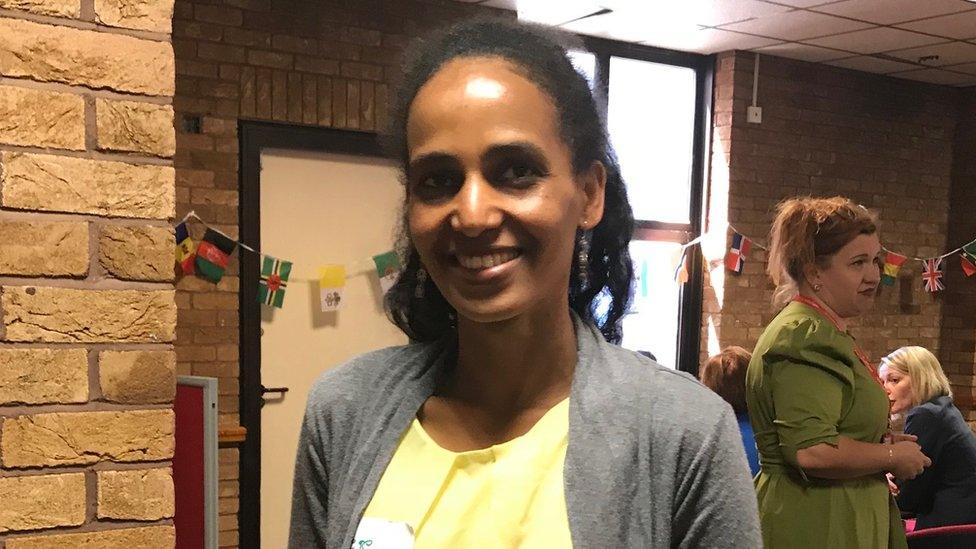
Tsege Yohannes travelled about 6,400 miles (10,300 km) from Asmara in Eritrea to Newport
Eritrea remains on a war footing with neighbour Ethiopia even though a border conflict ended in 1998.
While tens of thousands of people were killed, the UN estimates thousands continue to leave the country each month.
Tsege Yohannes' husband was possibly one of these after he simply disappeared one night without warning.
After she was put in jail, she escaped across a desert, warzone and sea to the UK.
Here she tells her story.
We didn't think we were alive - all we could see was sand. For eight days and nights, no houses, only dust and sand.
It was hard to breathe, this was perhaps the most difficult part of the journey.
I had been living in Asmara, the capital of Eritrea, with my husband and daughter, Naomi.
But one night he just disappeared.
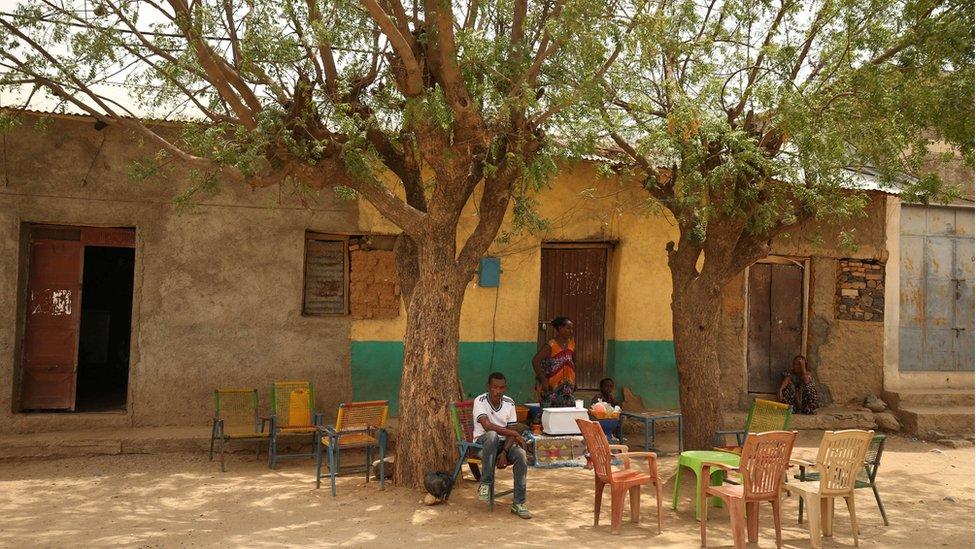
The town of Badme has been the focus of the dispute - with it claimed by both Ethiopia and Eritrea
The police came after me asking "where is your husband?" before they put me in prison and then followed me for two weeks after they let me out.
I was scared they would arrest me again, so left in 2011 with my daughter who was three at the time.
We travelled about 1,000 km, firstly walking and then by car to Khartoum, the capital of Sudan, where we were able to stay for 18 months with my sister.
But I didn't have the papers to stay there and soldiers kept asking for them.
I wasn't sure if we could have made a life there, so I decided to try and get to Europe.
My sister said Naomi could stay with her, so I decided to try to get to Libya through the desert.
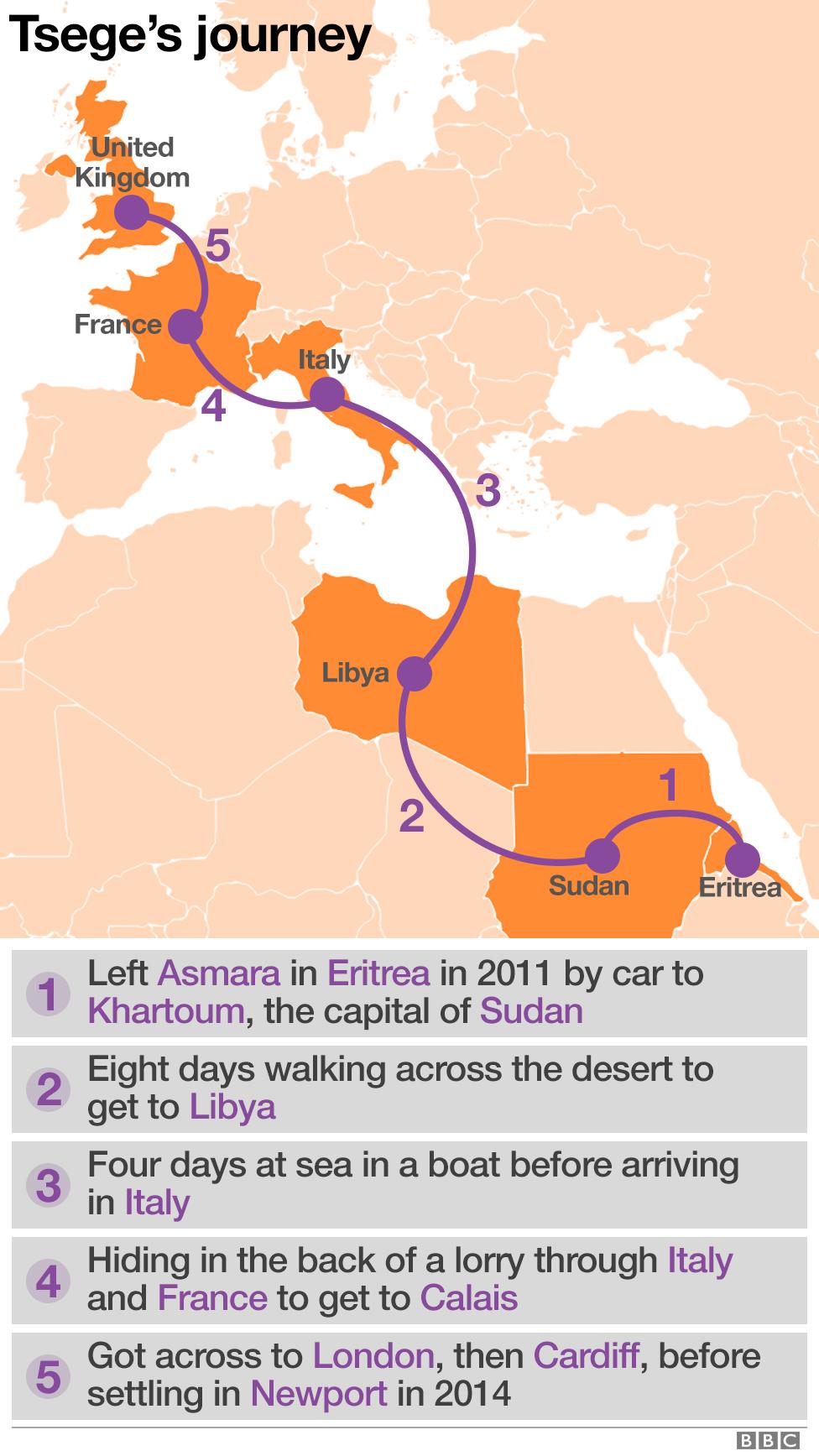
I can just remember it being windy and dusty and all I could see was dust for eight days and nights.
We had no food or water and couldn't sleep, maybe getting four or five hours at night.
When we got to Libya, it was very scary, very hard - there was no president and no peace.
We were hiding in one room, about 100 of us and all we could hear at night was shooting and guns going off.
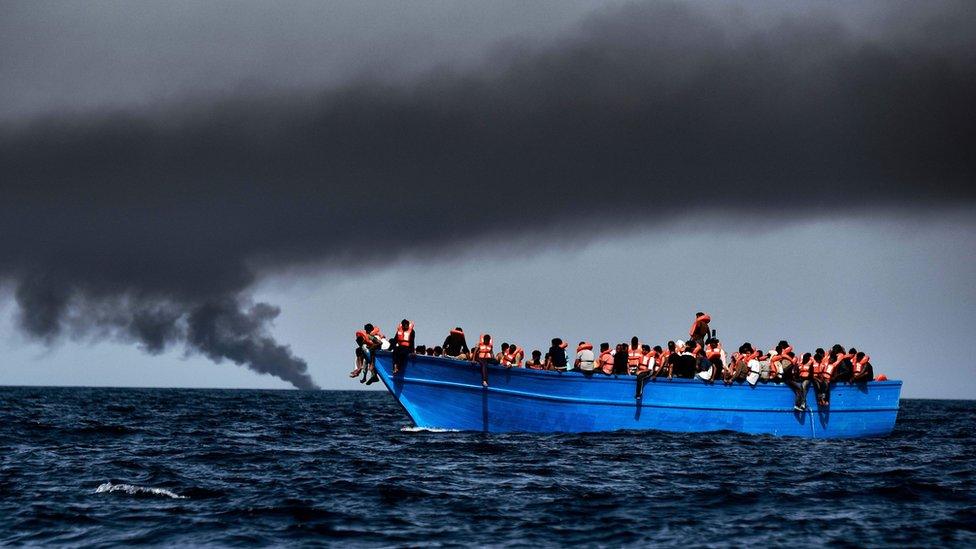
More than 600,000 migrants have come ashore in Italy since 2014 - the highest Mediterranean influx
About 250 of us - mainly from Eritrea - got on a boat to travel across to Italy.
We were all really sick at sea, it was hard to breathe, and we spent four days in all before arriving.
My daughter joined me in Italy and I wanted to stay but I couldn't get the status I needed to do so.
That was when we travelled in the back of a lorry through Italy to France and Calais and across to the UK.
When the lorry stopped, the air came out and my daughter couldn't often breathe.
The driver couldn't open the doors until the police arrived.
He said he had to pretend he didn't know we were in there and if he did that, they would know.
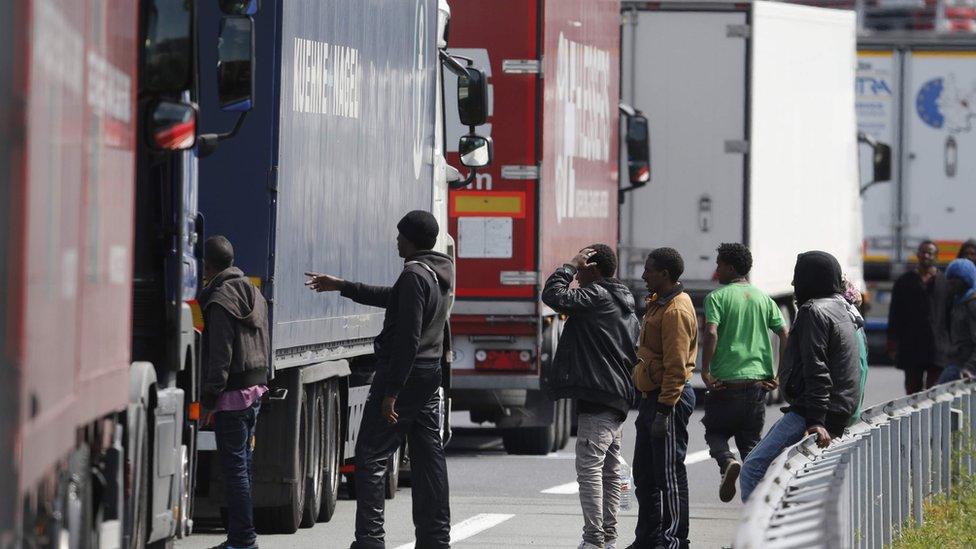
Thousands of refugees were in a camp in Calais, France, known as The Jungle, with these trying to get to the UK, many being smuggled in the backs of lorries
It seemed so long without air in there.
All I can remember of when the police arrived is them being very nice and asking how long my daughter hadn't eaten for.
We went to London and then Cardiff before we arrived in Newport in 2014.
I am extremely happy here, there is peace, Naomi has a nice school. We live, we learn and live peacefully.
Before, I wasn't taught English, but now is the time to learn.
I have another son now, Joshua who is three and is Welsh, and when they grow I want to go to college and train to be a nurse.
- Published26 June 2018
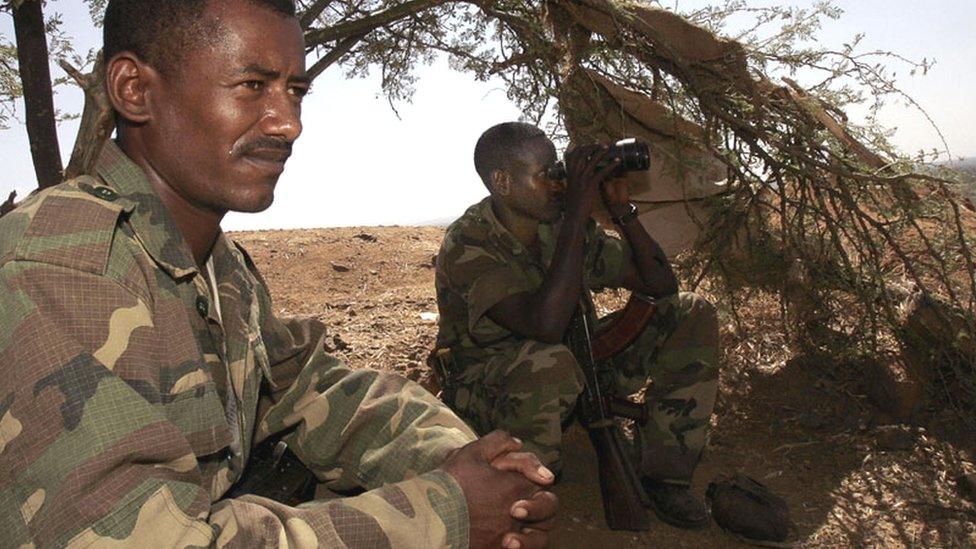
- Published22 July 2017
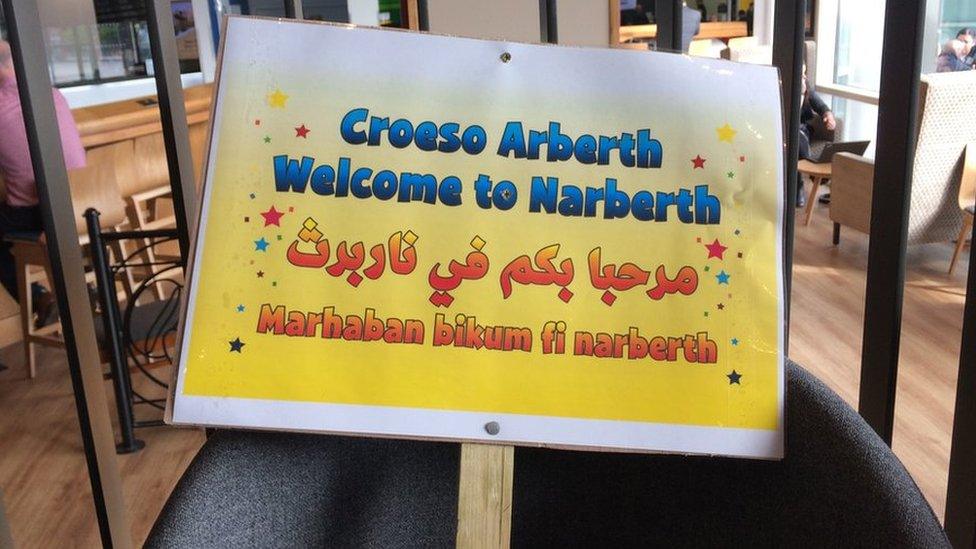
- Published1 August 2016
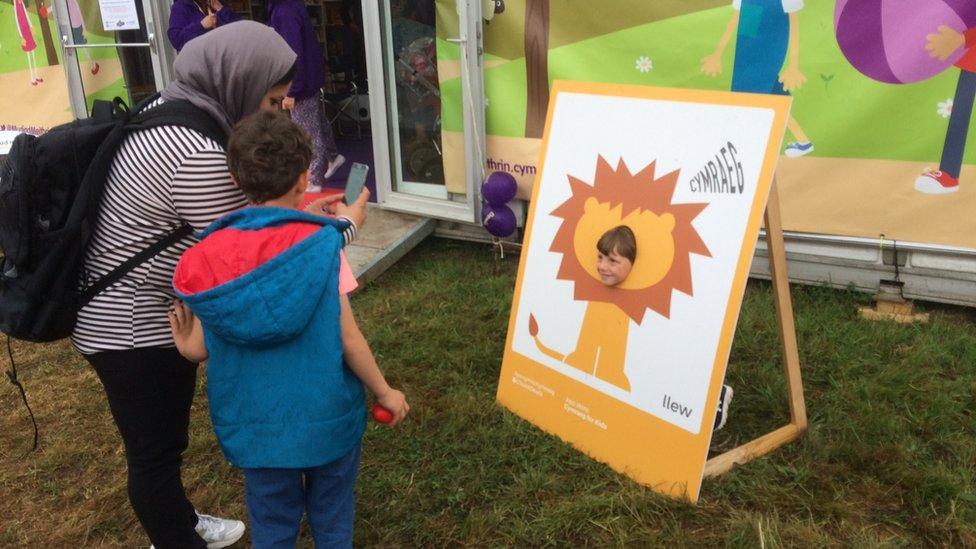
- Published26 June 2018
